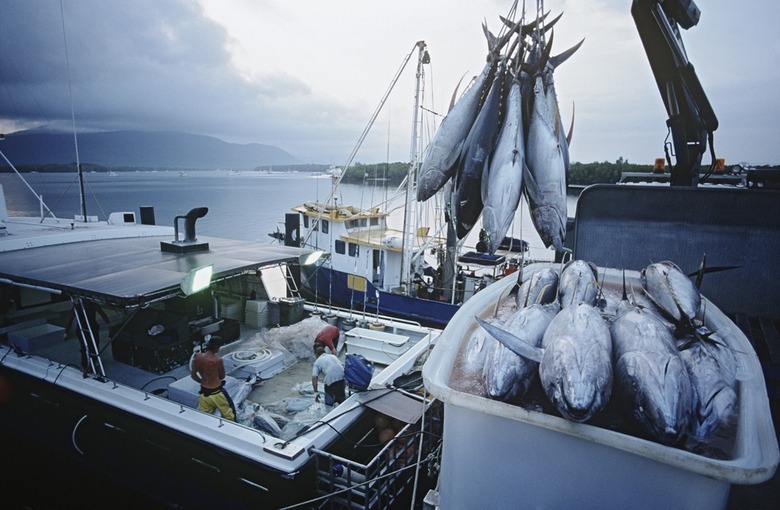US Overhauls 'Dolphin-Safe' Tuna Labeling To Comply With Ruling From World Trade Organization
The United States has made several changes to the labeling of "dolphin-safe" labels on tuna products in order to comply with a ruling from the World Trade Organization, and to avoid significant financial retaliation in the form of tariffs from Mexico.
Last year, the WTO found that the United States' guidelines for dolphin-safe tuna — which disqualifies tuna from Mexico based on the country's method of tuna fishing — "run counter to international trade laws."
However, rather than loosening the guidelines, the National Oceanographic and Atmospheric Administration issued rules that raise the standards of dolphin-safe labeling for all countries.
"The United States champions policies that protect dolphin populations from fishing practices that endanger them, and today's announcement of NOAA's interim final rule is a significant win in that effort," U.S. Trade Representative Michael Froman said in a statement.
Mexico has argued that the U.S. definition of dolphin-safe tuna, which mandates that "no tuna were caught on the trip in which such tuna were harvested using a purse seine net intentionally deployed on or to encircle dolphins, and that no dolphins were killed or seriously injured in the sets in which the tuna were caught," has kept the country from participating in the market for imported canned tuna, worth $680 million in 2014.
Mexico's method of catching tuna involves using these purse seine nets, which have caused the deaths of millions of dolphins in the past, though the country has agreed to make efforts to minimize that number.
The U.S. has previously pledged to appeal the decision, but is now scrambling to avoid more than $470 million in retaliatory tariffs on products imported from the U.S.
A day before Mexico was slated to request permission from the WTO to impose these tariffs, the National Marine Fisheries Service announced that it would require all countries to provide rigorous documentation for dolphin-safe tuna, previously only required for Mexico. According to the updated guidelines, a fishing vessel may be subject to additional observation if a fishery is believed to be causing harm to dolphins.
"NMFS issues this interim final rule to revise regulations implementing the Dolphin Protection Consumer Information Act to enhance the requirements for documentation that demonstrates the accuracy of dolphin-safe labels on tuna products," the agency said in a statement. "This interim final rule brings the United States into compliance with its obligations as a member of the World Trade Organization."
The WTO will need to review the new labels and determine whether they continue to discriminate against Mexico.
